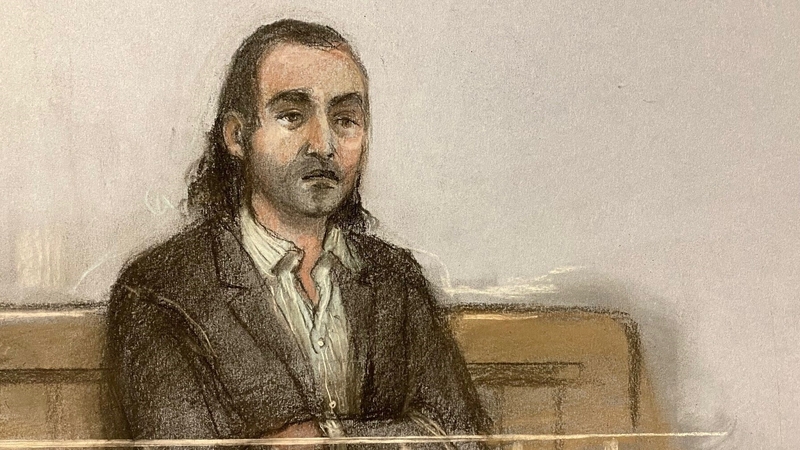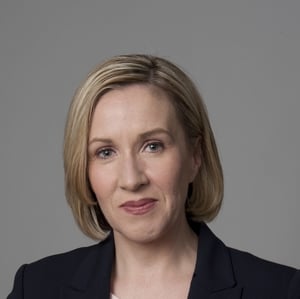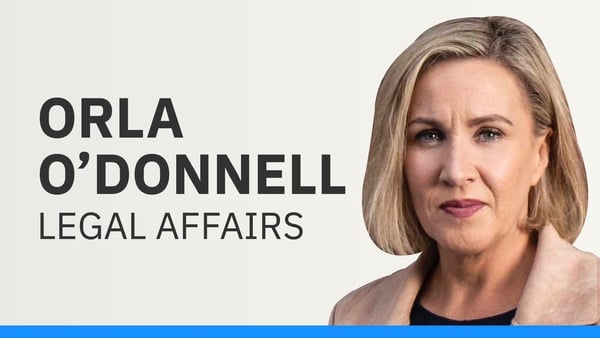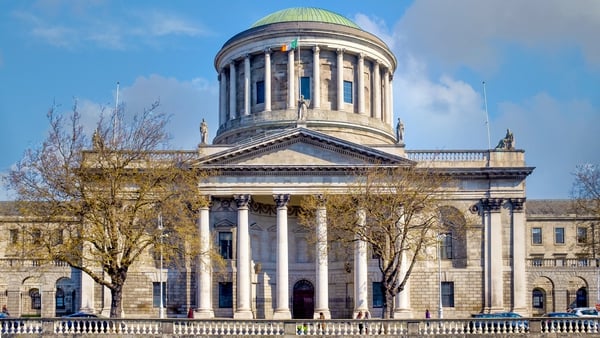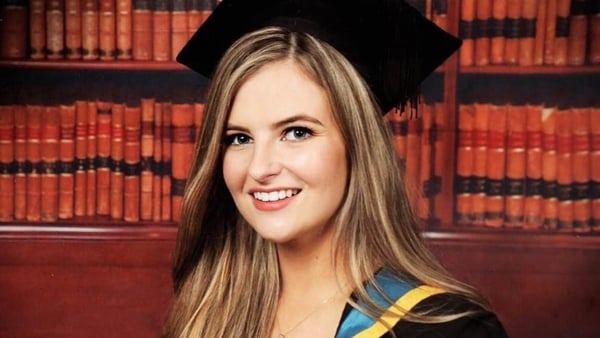Jozef Puska faced overwhelming evidence that he was guilty of murder. But his demeanour in court was unusual, with little show of concern or emotion until an incident in the final days of the trial. Our Legal Affairs Correspondent Órla O'Donnell observed him over the last three weeks.
As it became clear Jozef Puska was going to take to the witness box and give evidence directly to the jury, Mr Justice Tony Hunt issued a very gentle, but extraordinary warning to the family of Ashling Murphy.
The judge said he understood how hard the process was on Ashling's family, describing them as very strong and dignified people listening to very poignant and upsetting evidence.
He told them they may have a reaction to whatever was going to be said in evidence by the defendant, but to keep the trial on the rails, superhuman restraint may be required. He said his main concern was to get the case to the jury.
Earlier, he had spelled out this worry to prosecuting counsel Anne-Marie Lawlor. "It has always been my concern to get to the end of this trial as quickly as we can," he said. "That concern is heightened now." Ms Lawlor said she shared this feeling.
There was a reason for the judge’s anxiety on the 12th day of a trial that had until then, been running particularly smoothly.
On the previous morning, Puska had not turned up in court. The judge was told by defence counsel Michael Bowman that his client was not in a position to attend and would have a sick note excusing him for the rest of the day. Mr Bowman said he did not know the nature of Puska’s illness.
The jury were simply told that the trial had hit a "speed-bump" and sent home for the day. Sources said Puska had made an attempt to delay the process, prolonging the ordeal for the Murphy family.
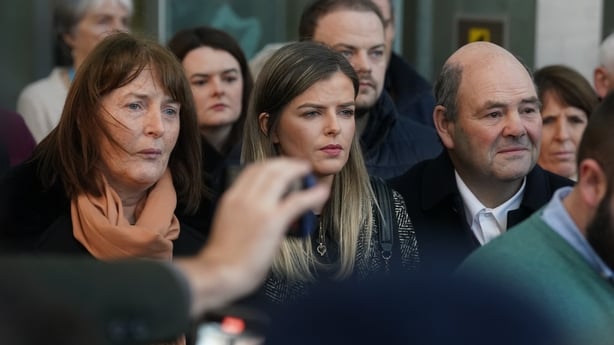
When he turned up in court the next morning, after a lengthy consultation with his entire legal team, his long black hair, which was usually slicked back in a ponytail, was down around his shoulders.
Judge Hunt told the jurors that the "difficulty" of the previous day had been resolved and the evidence proceeded. Ms Lawlor closed the case for the prosecution shortly before 3.30pm in the afternoon.
Clearly still concerned about bringing the case to a conclusion, Judge Hunt said he wanted Puska to make a start on his evidence even though court proceedings usually end around 4pm.
We need your consent to load this rte-player contentWe use rte-player to manage extra content that can set cookies on your device and collect data about your activity. Please review their details and accept them to load the content.Manage Preferences
Before he got into the witness box, Ashling Murphy's mother and father heeded the judge’s warning about reacting to what he had to say and decided to watch his evidence on screens in an overflow courtroom.
Ashling’s sister Amy remained in court. She asked one of the taller journalists sitting in the row in front of her to move aside so that she had a clear eyeline directly to the witness box, and she stared at Puska intently as he began to talk.
Puska didn't get too far in the half hour he had left on his first day of evidence. When the jury had been sent home for the evening, Judge Hunt addressed Mr Bowman.
He said Puska now had the opportunity to give his side of the story. But he said his evidence would be "terminated on the basis of self-induced excuses".
"He's to make sure he’s in good nick," the judge said, adding that it was up to Puska to present "in good nick" to continue his evidence in the morning.
Mr Bowman said he understood and that Puska's lawyers had had "a long conversation with him" earlier in the day.
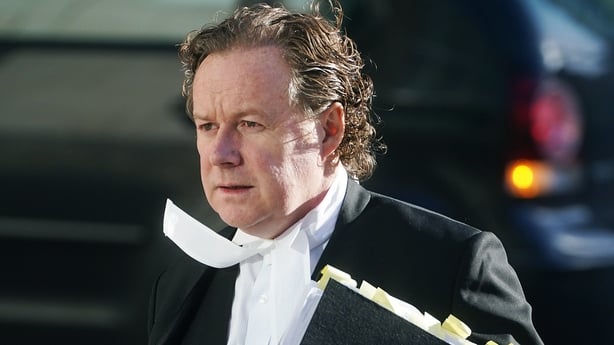
The "self-induced" speed bump had come after several setbacks for Puska's defence.
Firstly, prosecution expert Professor Michael Ryan had categorically stated that there was no recorded evidence anywhere of any effects on behaviour or mood caused by the dosage of oxycodone in Puska's system at the time he confessed to gardaí that he had murdered Ashling Murphy.
In answer to a final question by Ms Lawlor, Professor Ryan said he had never heard of anyone "confessing to murder, or anything like that", on a dose of less than 10mg of the pain relief drug, which was all that was left in Puska's system.
Puska had also learned following legal argument on the same day that the prosecution would be allowed to tell the jury that he had refused to answer certain questions while in garda custody and that he had been told certain inferences could be drawn by a jury from his refusal to answer them.
He had heard again that if there was no direct evidence about his version of what happened on 12 January last year, then Judge Hunt intended to make it crystal clear to the jurors that all they had to go on in that regard was "a hearsay assertion from Mr Bowman with no evidence to back it up".
Puska could have been left in no doubt that he would have to give evidence in person, something that is relatively uncommon for an accused in a murder trial.
His sick note the following day may have been the first indication that the pressure was finally getting to him.
Puska's demeanour during the first week of the trial was unusual for someone in his position, particularly in light of the "overwhelming" evidence against him.
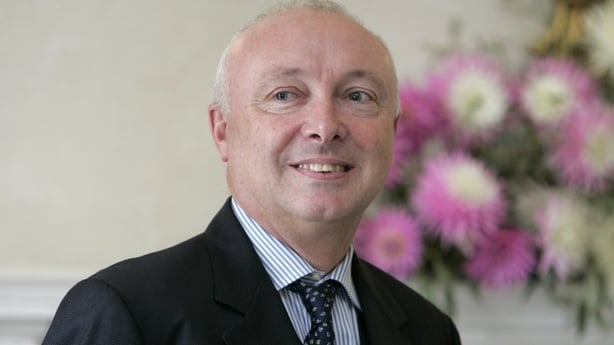
One garda remarked that investigators in a case are often lucky to have DNA evidence or CCTV footage or a confession. In this investigation they had all of that and more.
His parents attended court every day and he would look towards them and greet them when he emerged from the CCJ’s holding cells every morning. They were often joined by one or more of Puska's siblings.
On one of the earliest days of the case, when pre-trial arguments were still under way, Puska's parents were joined by a young girl who gave Puska a smile and a shy wave as he emerged. He smiled warmly and returned her greeting.
He did not seem in the first week or so as if he was under stress or suffering under the weight of the serious charge he was accused of.
He was smartly dressed in a jacket and shirt. His long hair was neatly styled in a ponytail and he seemed engaged in the proceedings, exchanging conversation with his interpreter, consulting with his lawyers and sometimes taking notes during the evidence.
There were very few shows of emotion. When eyewitness Jenna Stack described how he had told her to "get away" when she saw him crouched over Ashling Murphy, he shook his head. At other points, he appeared to be smirking.
Judge Hunt looked sharply at him as he smirked when CCTV footage of him following witness Anne Marie Kelly on his bicycle was shown to the jury.
Members of Ms Murphy’s family were disgusted to see him smirking as pathologist Dr Sallyanne Collis gave her evidence of Ms Murphy's injuries.
He did not show any signs of upset, remorse or regret. He looked more like someone who was slightly petulant or annoyed that he had to be in court.
As the days wore on, however, journalists in court noticed he looked more tired and a bit more defeated. His expression grew more sullen.
Interpreter brought in from UK
When he eventually gave evidence, with an interpreter sitting beside him, he delivered his answers in Slovak without any emotion.
The interpreter had to be flown in from the UK as it was impossible to find anyone suitably qualified in Ireland who had not had a previous involvement in the case.
The contrast between Mr Puska's monotonous tone and the animated delivery of the interpreter who translated his answers into English was noted by some of those watching.
There were only a couple of occasions when Puska himself appeared to get animated.
At the beginning of his evidence, he became annoyed with the interpreter, accusing her of not translating something correctly.
Later, when it was put to him that Ms Kelly had stopped on the path and moved over to allow him to pass her on his bicycle, he raised his voice slightly as he said he'd seen the CCTV in court and it showed that Ms Kelly was mistaken and hadn't in fact stopped.
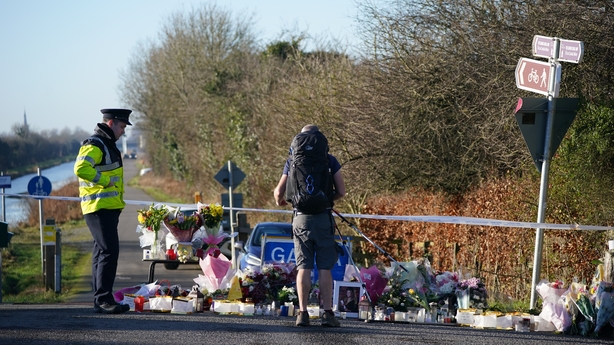
Puska apologised only once during his evidence, not for the murder, but for lying to gardaí in St James's Hospital about being stabbed in Blanchardstown. He said he had a reason for this lie, to protect his family.
He was worried that if he told them he had been in attacked in Tullamore they might go looking for his attacker and get into trouble themselves.
At points during his testimony, the crowd of people gathered in the overflow courtroom laughed out loud at Puska's version of events and his explanations for his lack of memory and his lies.
But at the end of her cross-examination, Ms Lawlor returned to the heart of the matter, posing a series of powerful questions in rapid succession, about Puska's presence in the ditch beside the Grand Canal with Ashling Murphy.
"Did you just stay there and watch Ashling Murphy die?" she asked. "Did you wait until she was dead?" "Did you stop 'helping her' before she was dead?"
The interpreter's eyes were full of tears and her efforts to compose herself were visible as she continued to translate Puska's answers. In the overflow courtroom, Ashling's mother sobbed.
Puska himself showed no emotion. He did not express any remorse to Ms Murphy's family, not even to say that he was sorry he had not been able to help her. It was not clear if he had even registered Ashling's sister staring at him from her seat.
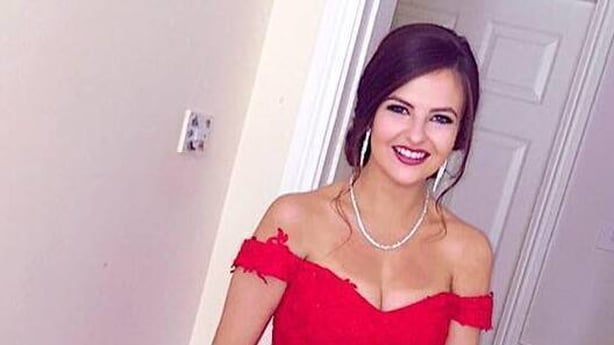
He seemed unmoved by Ms Lawlor's questions. Put to him that he had lied consistently and was lying again in the witness box, he simply remarked that he was saying to her what he remembered.
By the time the closing speeches began two days later, Puska's mood seemed to have improved. He winked and smiled at a large group of his relatives, led as usual by his parents, at the back of the court room.
As he was brought into court to hear the jury's verdict yesterday afternoon, Puska again greeted his family.
But he looked nervous and anxiously interlinked his fingers and gripped his cup of water. As the registrar announced the guilty verdict, he lowered his head and closed his eyes.
The judge said Puska would get his "day of reckoning" on 17 November when victim impact evidence will be heard.
